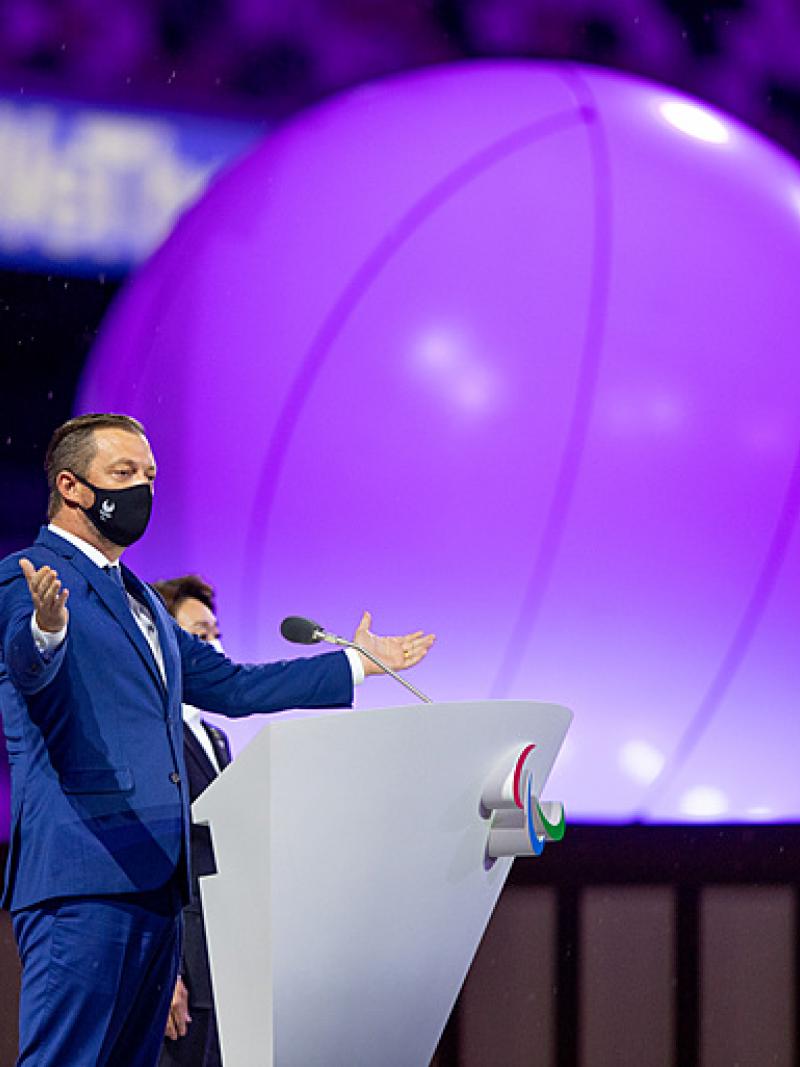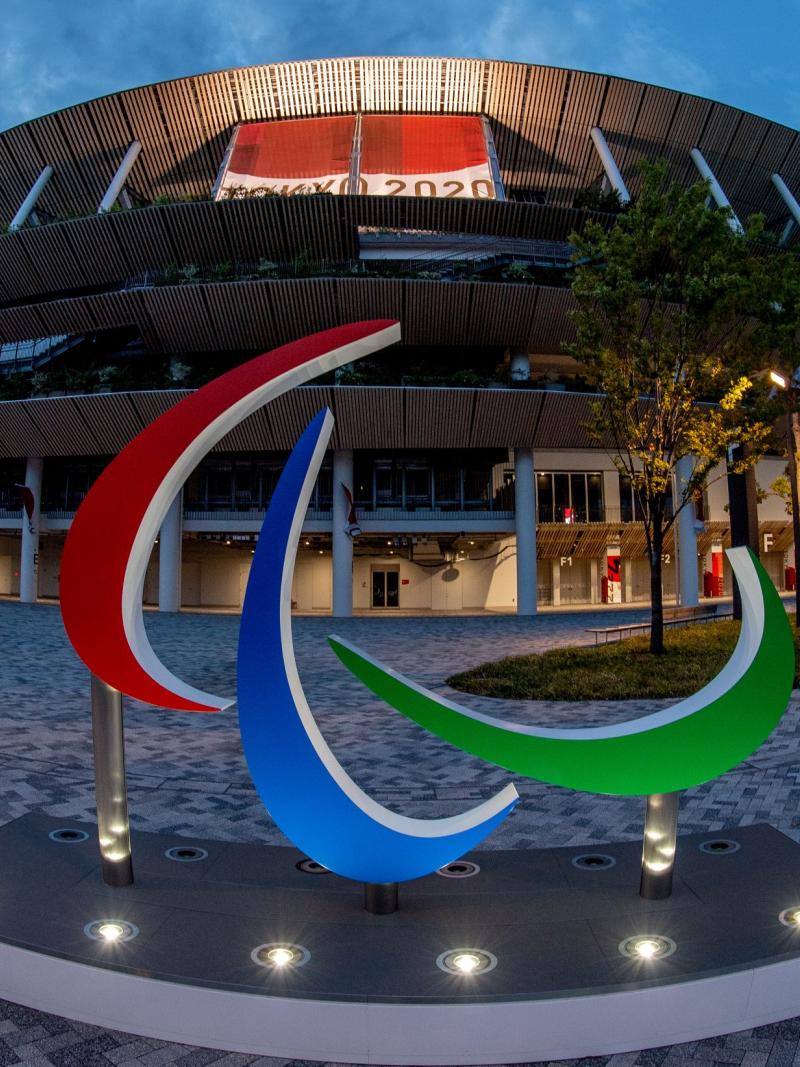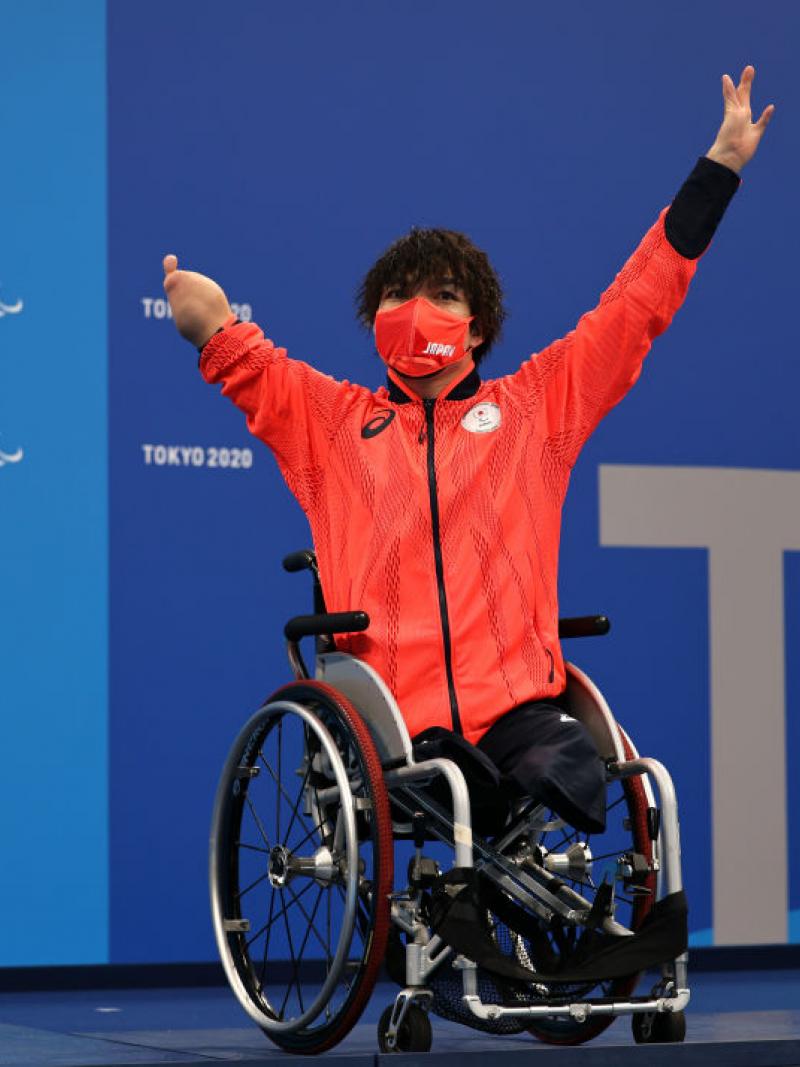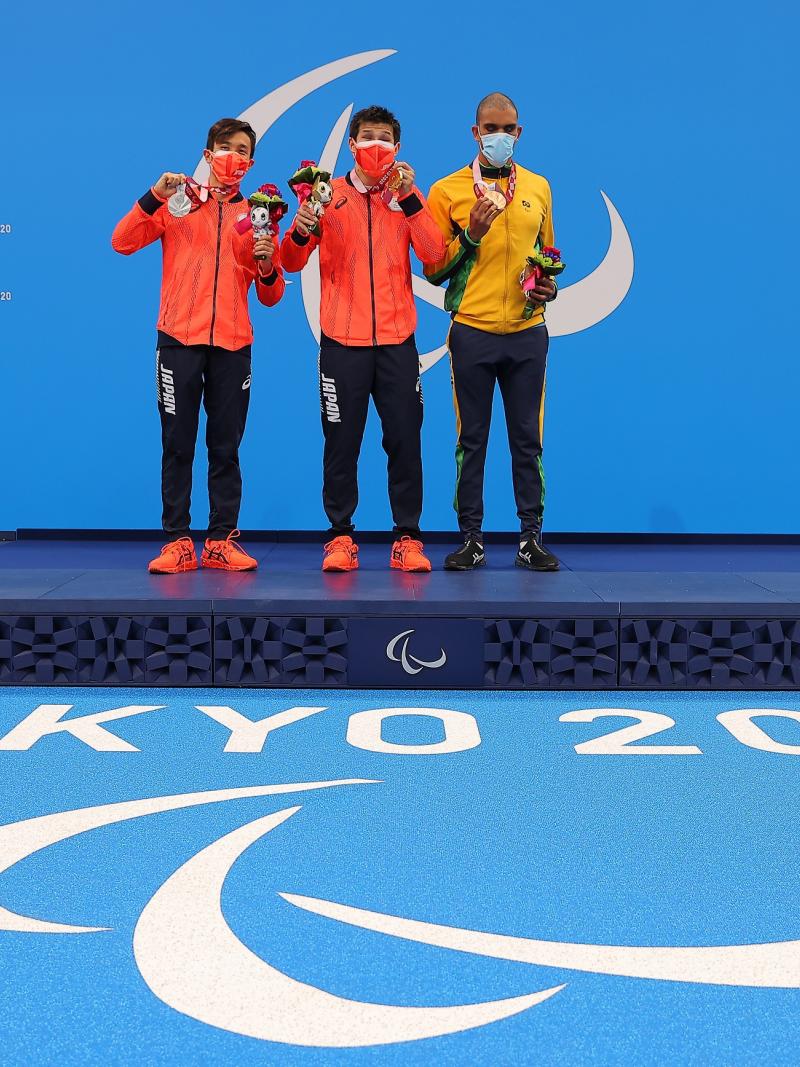Tokyo 2020 one-year anniversary: Andrew Parsons reflects on the legacy of the Games
"Japan as a nation, they were really proud of not only delivering the Games but offering to 1.2 billion persons with disability worldwide that amazing platform to send their message of inclusion to the world" 24 Aug 2022
Up until the moment when International Paralympic Committee (IPC) President Andrew Parsons stood in the stadium to officially open the Tokyo 2020 Paralympic Games, the holding of the event seemed uncertain, sometimes even impossible.
Originally scheduled to take place from 25 August to 6 September 2020, the Games were postponed by a year as the world grappled with the COVID-19 pandemic, and once the sports action started, the Games had a different dynamic than originally envisaged. Sports events were held without spectators, and strict anti-COVID measures were in place to ensure the Games participants’ safety.
Despite these restrictions, the Games were hailed a success and a year after the Opening Ceremony, their legacy is already being felt across the host country with new perceptions of persons with disabilities and a greater awareness of Para sports.
We sat down with IPC President Andrew Parsons to discuss his most memorable moments from the Tokyo 2020 Paralympic Games and the Games' transformative impact a year after the cauldron was lit in the Olympic Stadium.
IPC: This month we are celebrating the 10-year anniversary of the London 2012 Paralympic Games, which were a milestone event in the Paralympic Movement. To follow London, we had Rio 2016 - the first Paralympic Games held in South America. For you, what was the key narrative for Tokyo 2020 and the defining moment of those Games?
Andrew Parsons: I don't think we can speak about Tokyo without mentioning the pandemic and how Japan as a nation and Tokyo as a metropolitan area have committed themselves to, no matter what, delivering incredible Games. Even with the postponement, even without spectators, the Games were delivered with a technical excellence, so it was amazing to be there and be part of that. I think we are forever in debt with Japan as a nation because the vast majority of other nations would have just said, ‘Look, cancel the Games. We can't’, and they never even mentioned that. So I think just to deliver the Games was something absolutely incredible and outstanding from our colleagues in Japan.
IPC: What were the moments that stood out for you among the sports performances in Tokyo?
AP: Oh, there are many. When I was there, I was watching some of the performances and seeing how these athletes are delivering these performances. They have trained for one year and a half in very difficult conditions due to the pandemic so it was not a normal preparation and what caught my attention was the number of young athletes winning medals already and across all the sports - swimmers, athletes in Para athletics, but also in the team sports you saw very young athletes joining the team.
So I don't want to highlight a specific sport or athlete. What I can highlight - for me it was really special - is welcoming the Afghani athletes at the Paralympic Village and realising that even in circumstances like that in Tokyo, with the pandemic and with all the restrictions, sport can still do something that goes beyond the competition for persons with disability. To see Hossain (Rasouli) and Zakia (Khudadadi) arriving at the Village, and I had then the opportunity to see Zakia competing in Para taekwondo, was very special to me.
IPC: As you said, it's very hard to pick just one athlete or one sport, but there are two sports that stood out from the beginning. These are Para taekwondo and Para badminton, which made their debut at Tokyo 2020. What was the impact on those sports to be included in the Paralympic programme?
AP: It has helped to grow the sports a lot in terms of the global participation. More athletes from more countries and, of course, because of the investment, you see the level of the sport increase. I’ve been attending some other championships or games in which Para taekwondo and Para badminton were in, but to see the level of sport excellence at the Paralympic Games was just amazing. I think it was hand and glove. How they fit into the overall Paralympic sports programme was amazing to see. I attended both. I delivered medals in both and it was great to see the competitions.
I think when you have the sport included in the Paralympic Games programme, because of the investment of the nations, of the NPCs (National Paralympic Committees), the national governments and the agencies, it really helps to develop the overall level of that sport and it's what I have seen in both sports. I can't imagine where these sports are going for Paris 2024 with two cycles of investment from the national bodies and government agencies towards the development of those athletes.
IPC: There were no spectators at Tokyo 2020 due to pandemic restrictions. Do you feel that Japanese people were still able to appreciate the value of the Games even if they weren't able to watch them in person?
AP: It's not only about the 10, 11, 12 days of the Games. It's the whole journey and this was an eight-year journey and we, who were involved since the beginning, we could see the change in the attitudes of the Japanese society in general. So I think in terms of the legacy of these Games, it's still really, really strong and I think it will be a long-lasting legacy, so for many years we will feel the impact of hosting the Paralympic Games in Tokyo when it comes to the perceptions within Japanese society towards persons with disability.
I could see that during the Games. People could not attend the competitions, but when I was going from one place to the other and seeing Japanese people in the streets, when they saw the car with the Tokyo logo on it, they knew there was someone (inside) related to the Games, and they were cheering and they were enthusiastic, sometimes even clapping when a car was passing with the logo of Tokyo.
I believe the whole nation was proud of hosting that event. Yes, there was some debate before because of the pandemic and the safety of the Japanese population. But I do believe with countermeasures in place and the positive experience of the Olympics, when we were there for the Paralympics, Japan as a nation, they were really proud of not only delivering the Games but offering to 1.2 billion persons with disability worldwide that amazing platform to send their message of inclusion to the world.
IPC: Do you feel the Games have helped to change perceptions in Japan and make the country more accessible, more inclusive?
AP: Definitely. If you compare between the Opening Ceremony of the Games and now, yes, it's difficult to measure, but if you compare to the bid period, then we talk about 2013 and 2014 when the OC (Organising Committee) started their work, it's completely different. Even when you speak with government officials or with people in general in the streets or NGOs or even the people from the NPC, there is a different opinion and understanding.
The youngsters of Japan, they do perceive personal disability differently from the older generations in that country and as this generation will slowly become the decision makers of that nation, for sure this positive effect of Tokyo will remain and for the next years and generations to come, we will have an even more inclusive society than we have now.
IPC: Aside from a change in perceptions, what are the other short-term legacies from Tokyo 2020?
AP: It's a good example because normally you have the Games in developed nations and some people think, ‘Oh, but what can you advance?’ Tokyo, Japan is a very advanced society, and there the metro system went from 70 something percent of the system being accessible to 100 percent so you can always improve even what is already a good number compared to the rest of the world. You can make everything accessible, you can improve. We had to change the legislation, for example, when it comes to accommodation in Japan, so we have more accessible rooms across Japan than we had prior to the Games, a better and more accessible transport system in Tokyo than before the Games.
But I would still say that the change in attitude and perception is what really is more important here in Japan. There was this feeling of overprotection of persons with disability. It's a country with a good level of accessibility, but ‘please do stay at home, here, protected’. And what we helped change - and the athletes, they led that change - is we provided the platform. The Japanese society said, ‘Wow, I don't need to protect these guys. They need to be given an opportunity and that's it. The same opportunity that is given to everyone’, so I think we really helped change that mentality in Japan.
 Facebook
Facebook
 Instagram
Instagram
 Twitter
Twitter
 Youtube
Youtube




